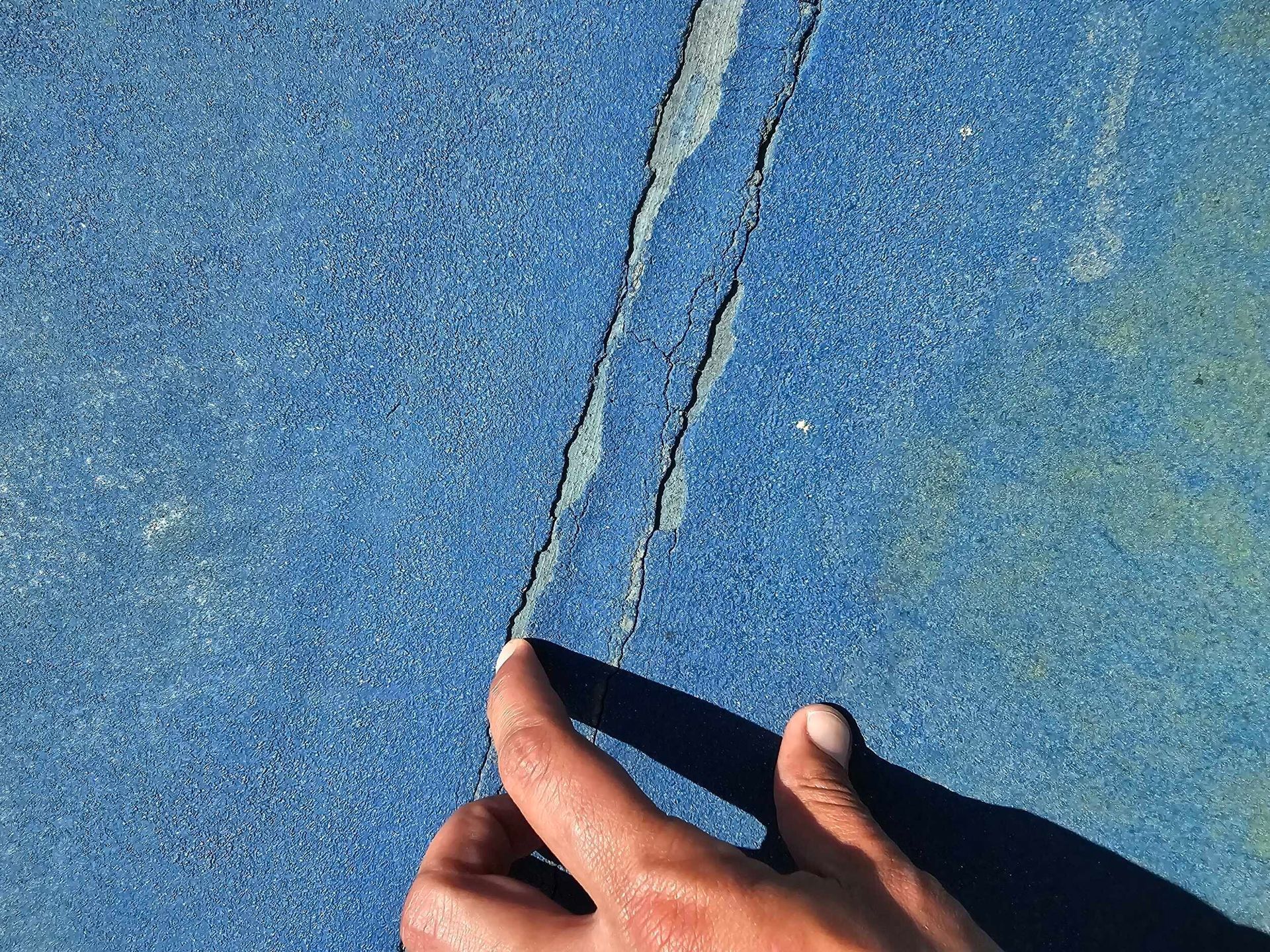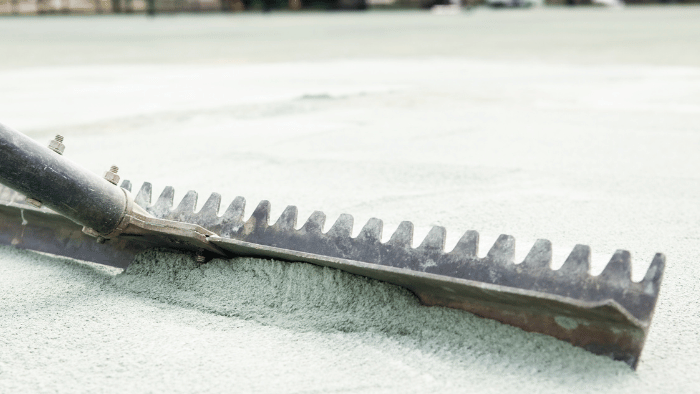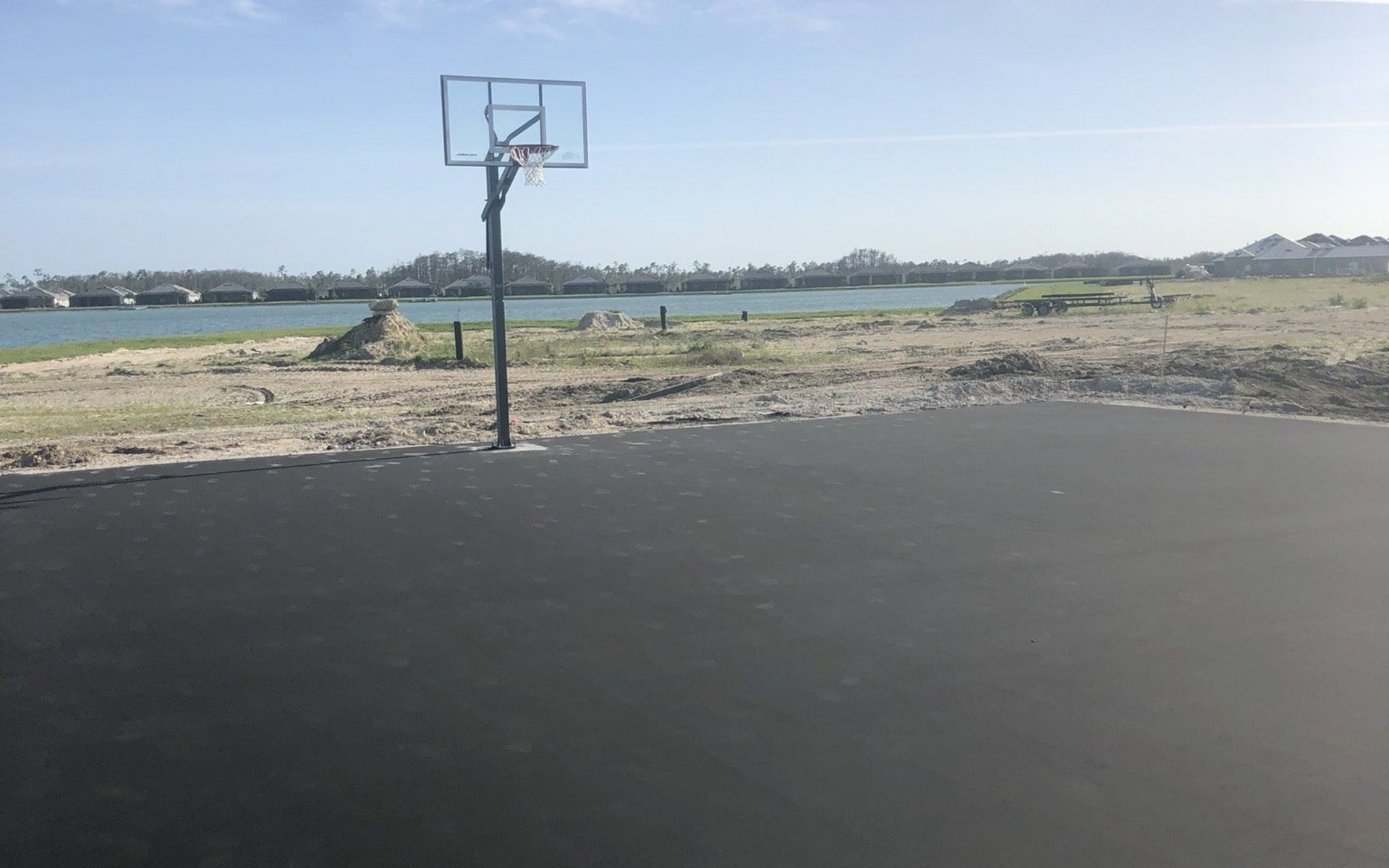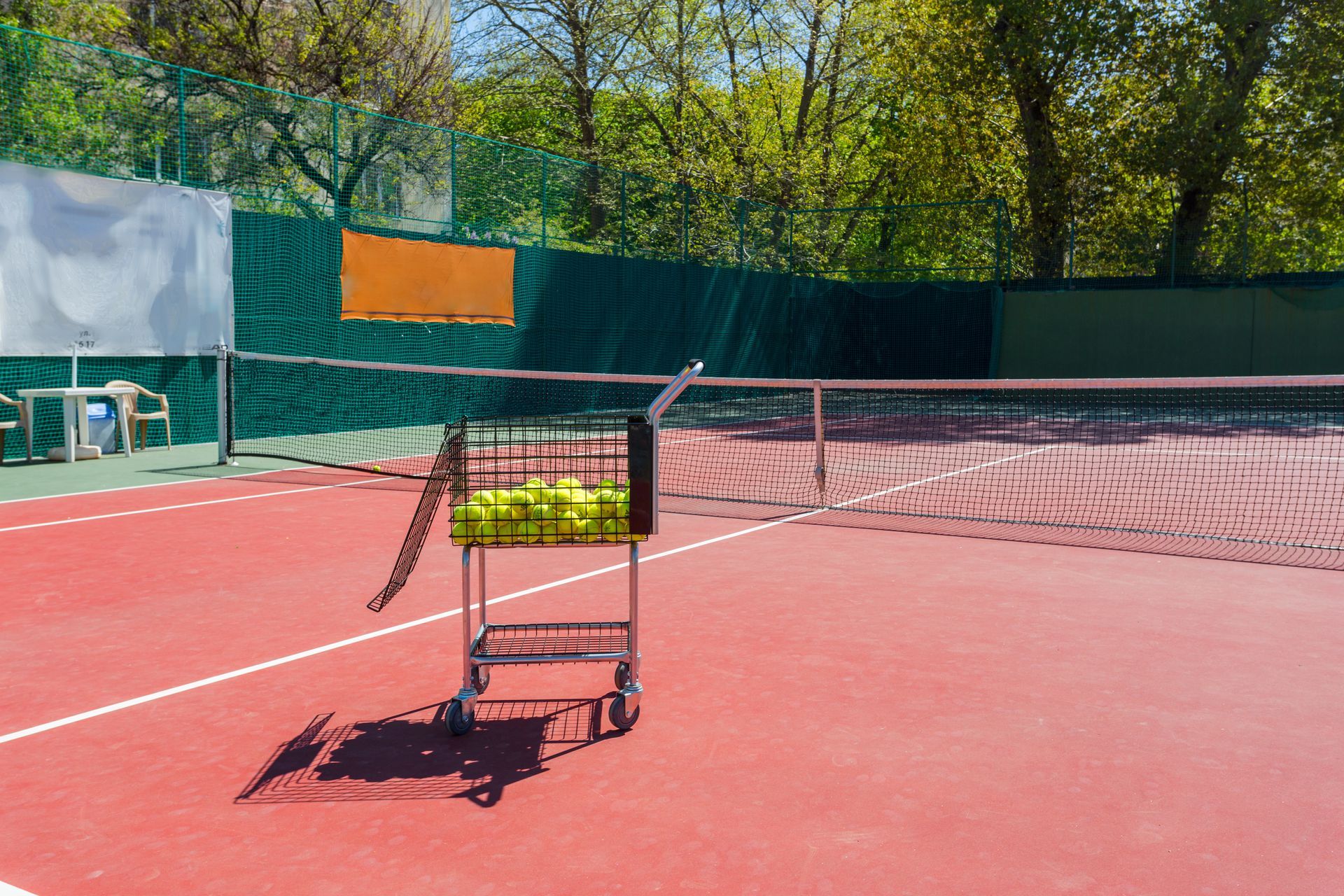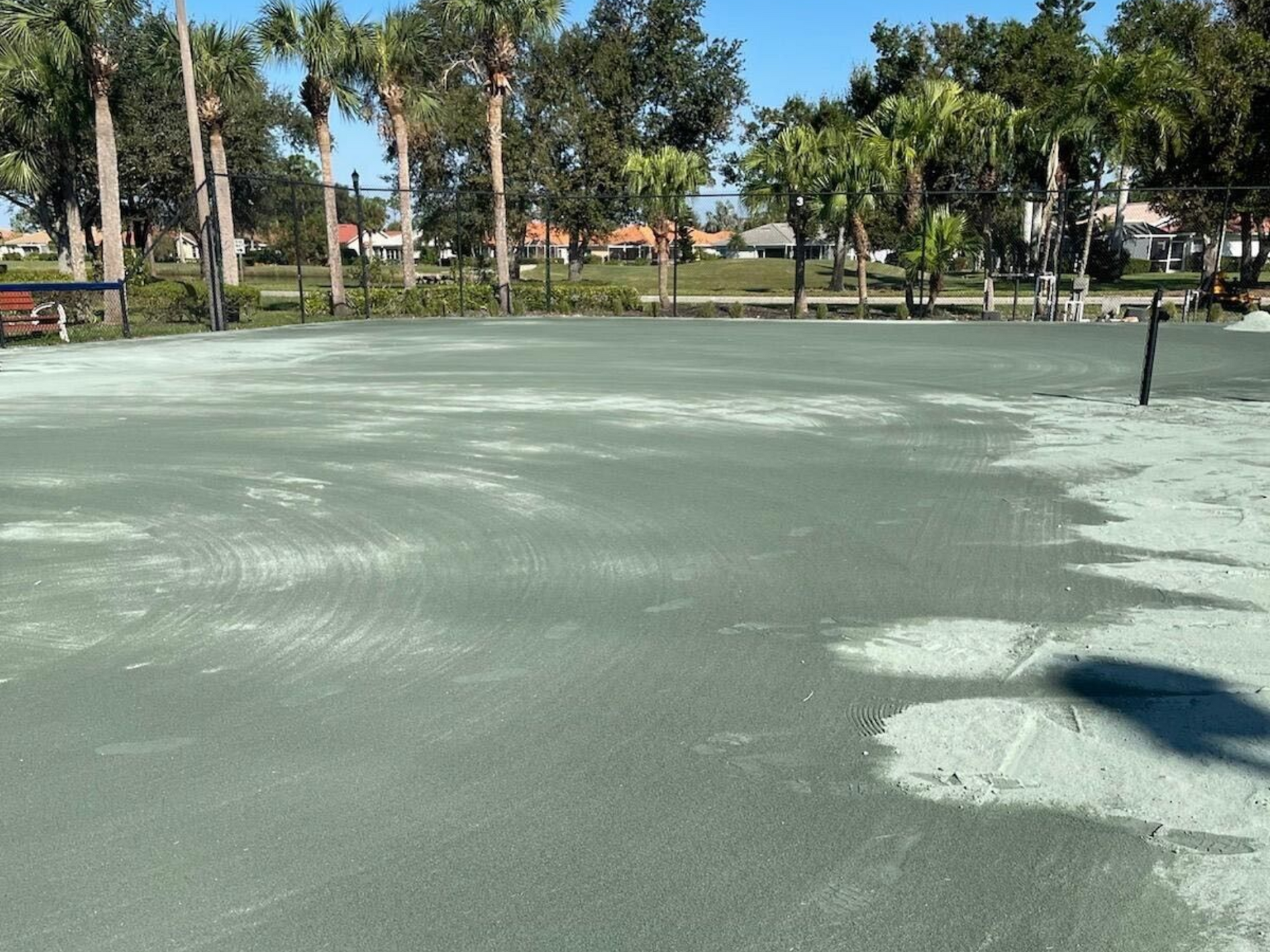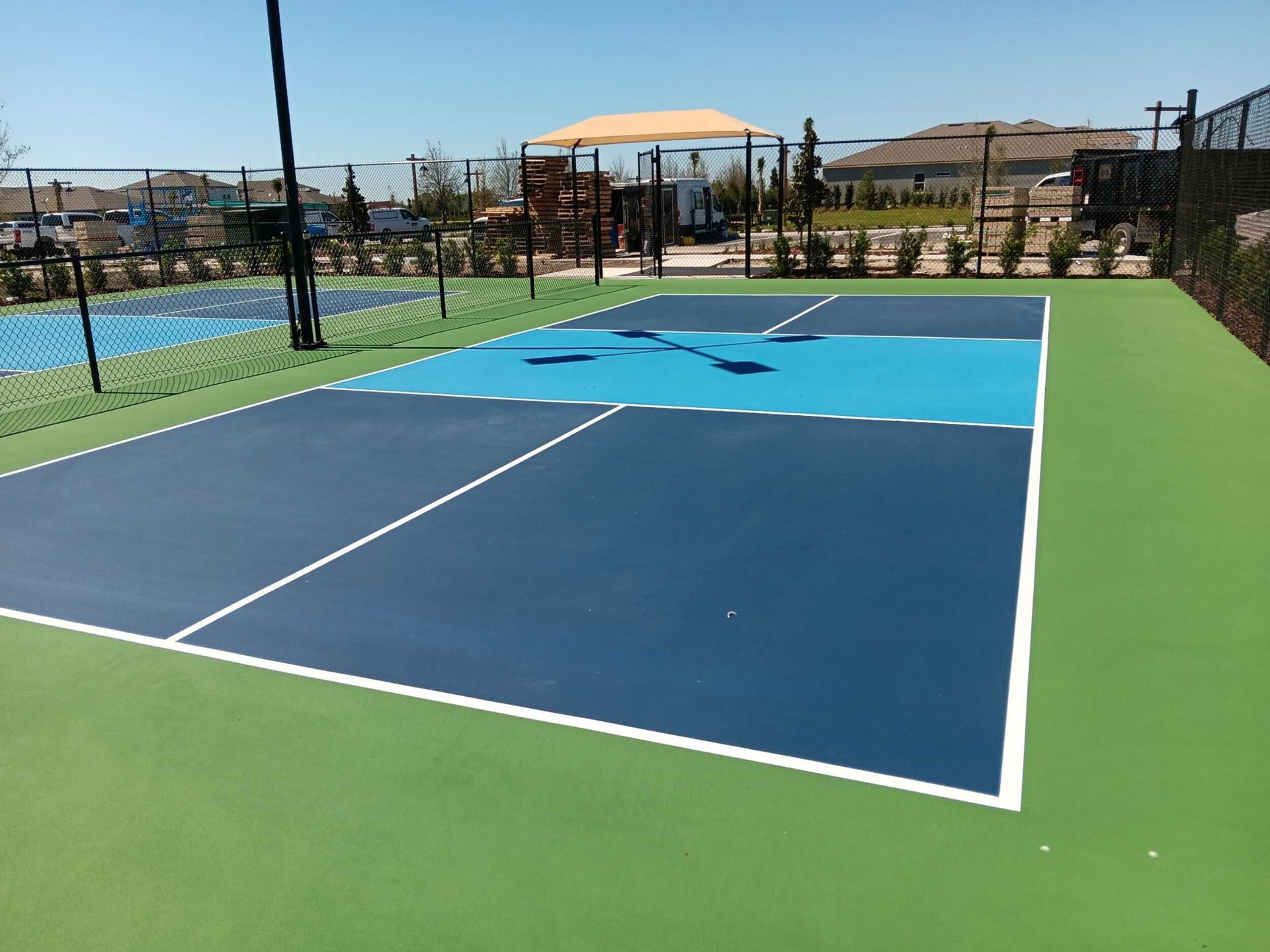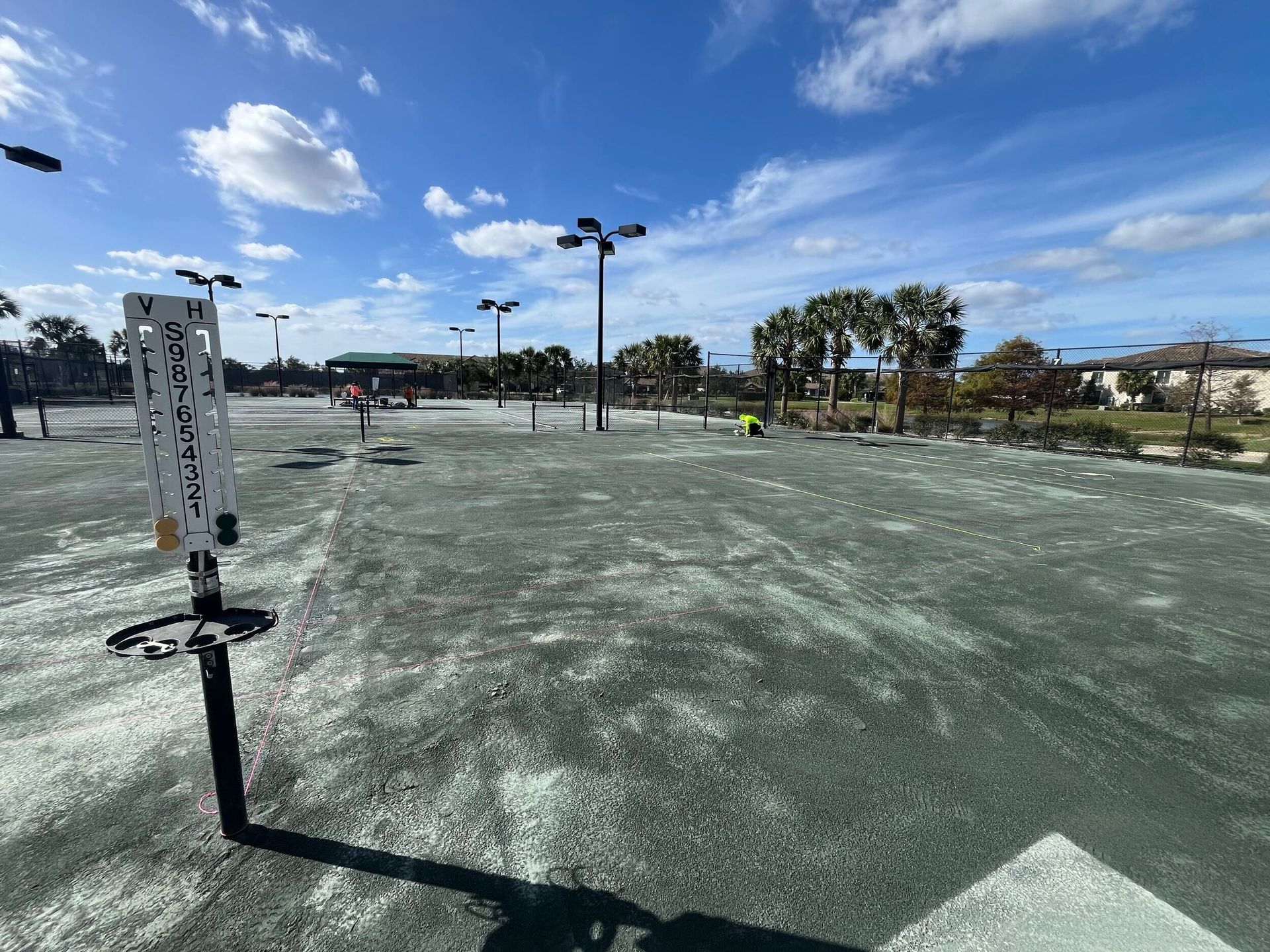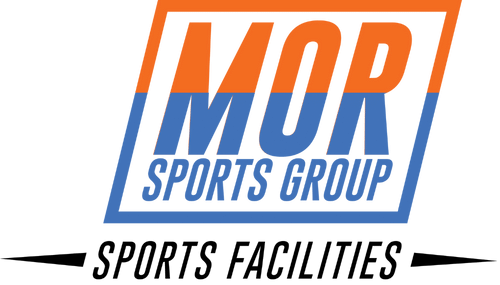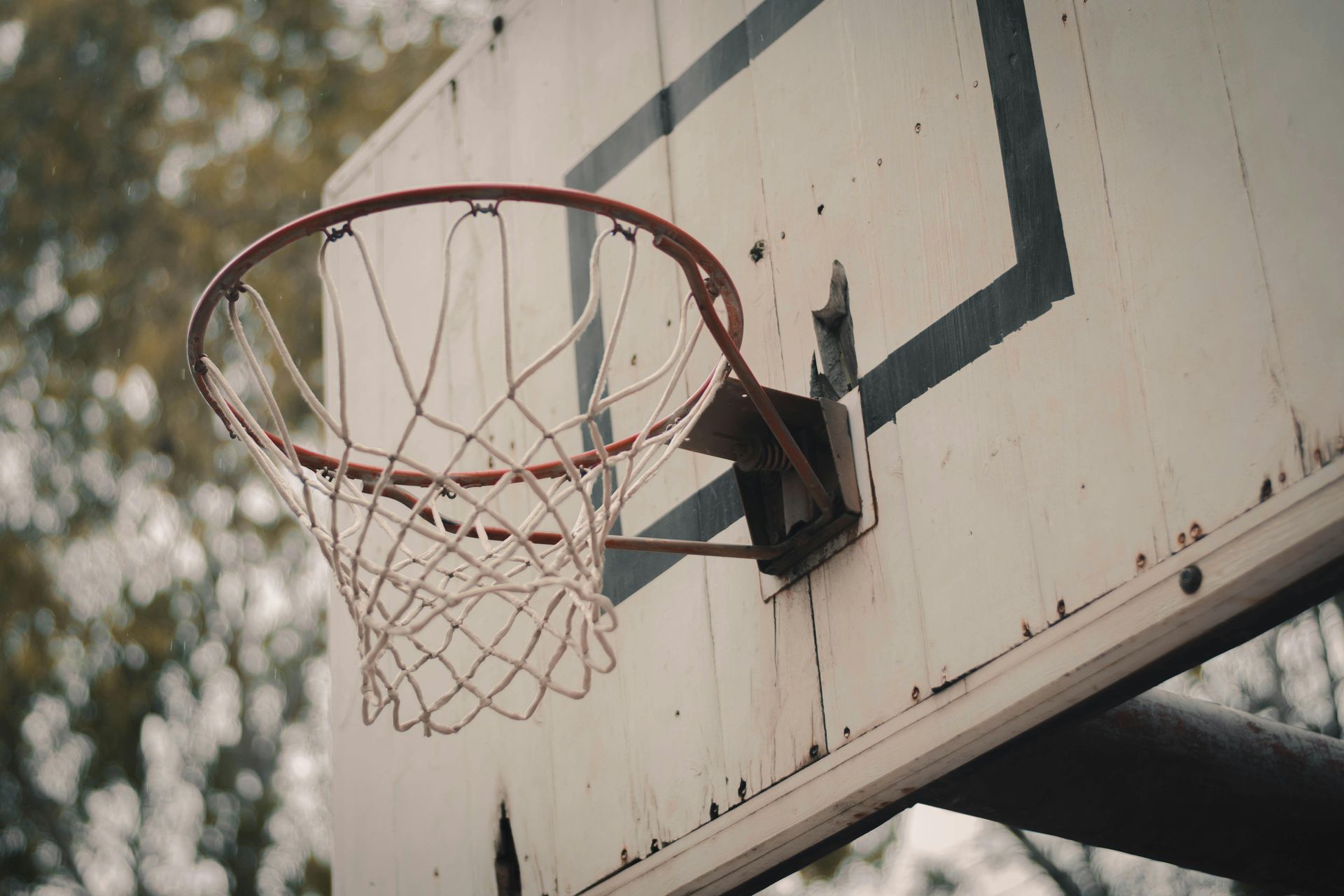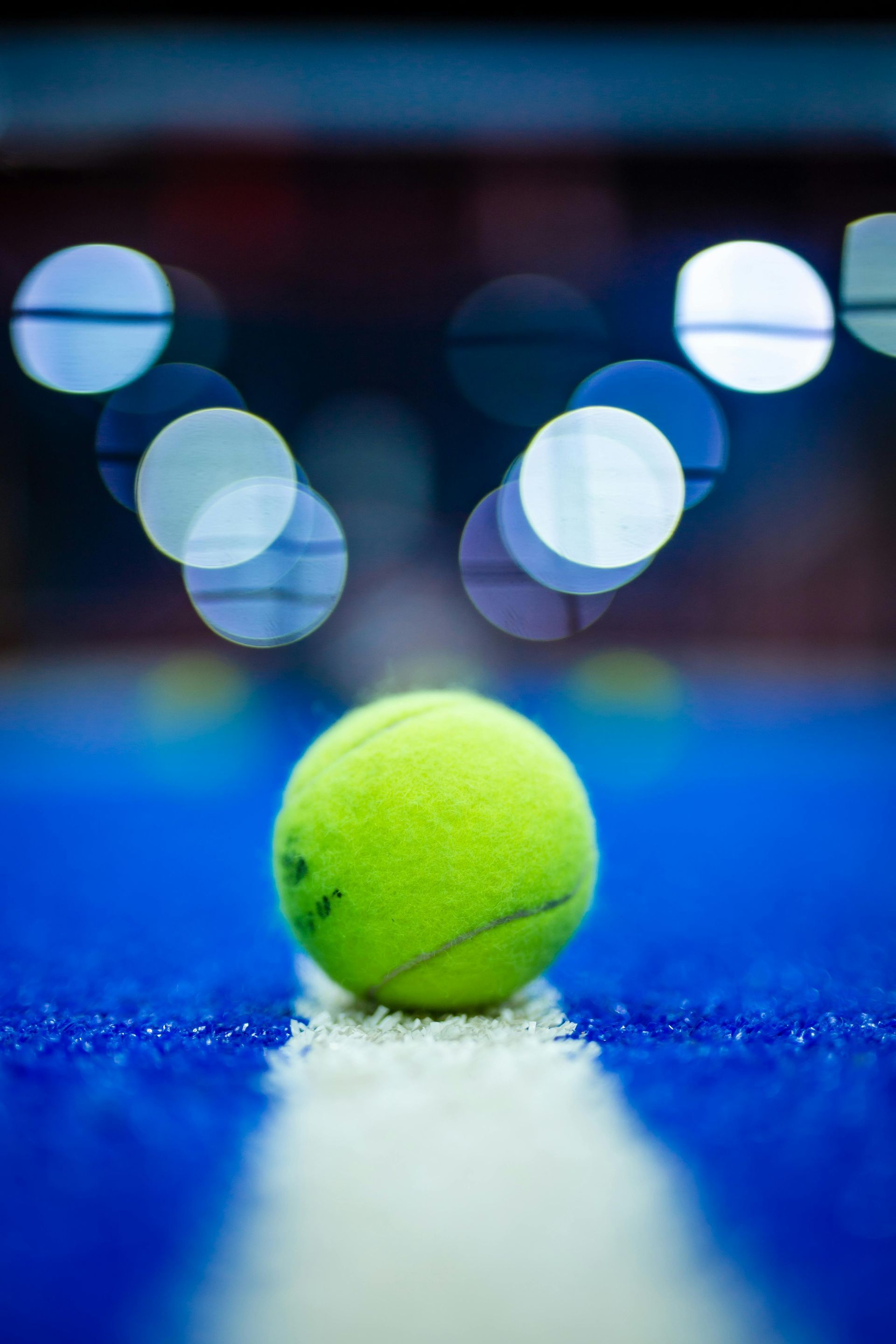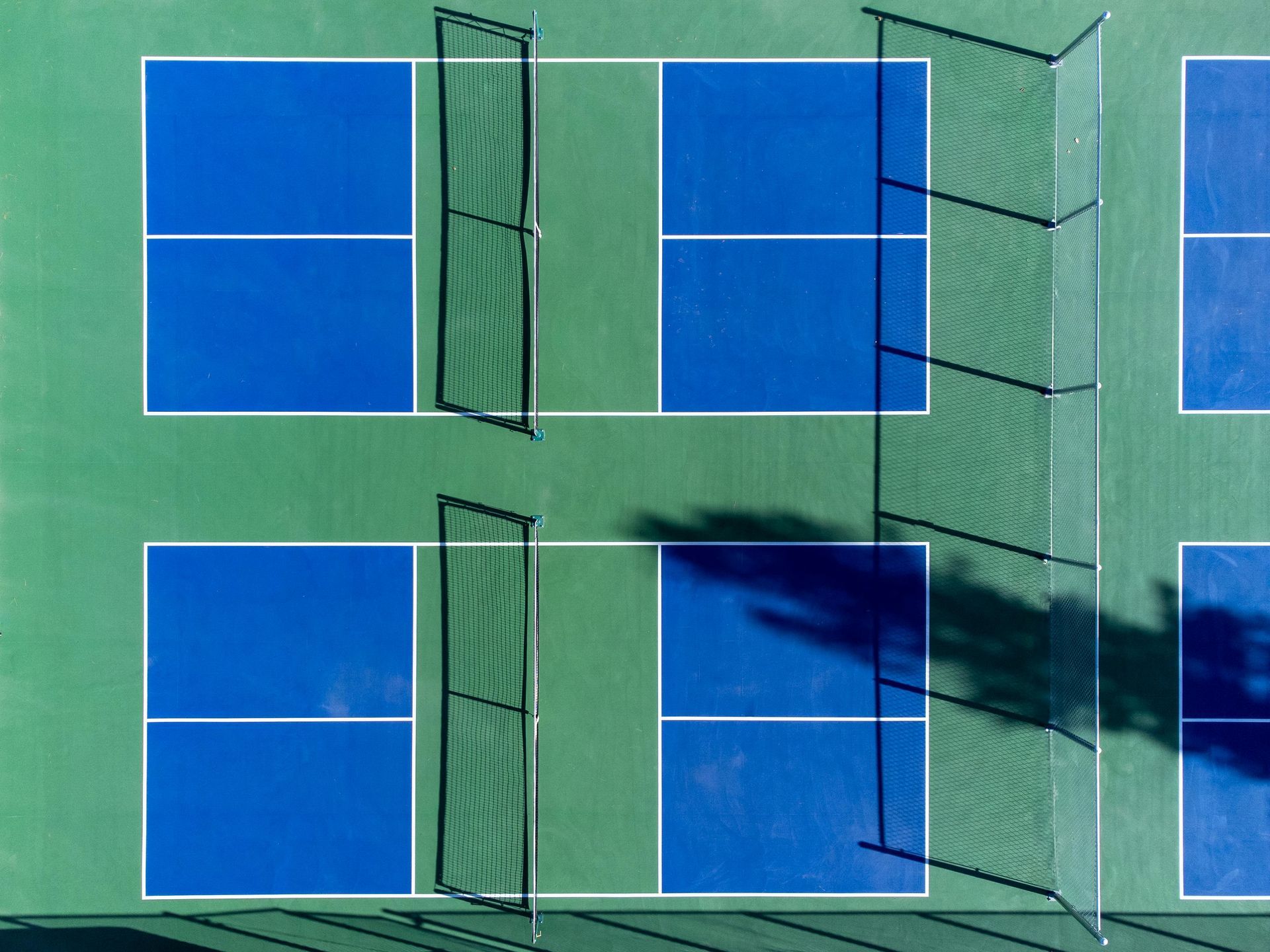Why Choose Acrylic Resurfacing for Your Tennis Court
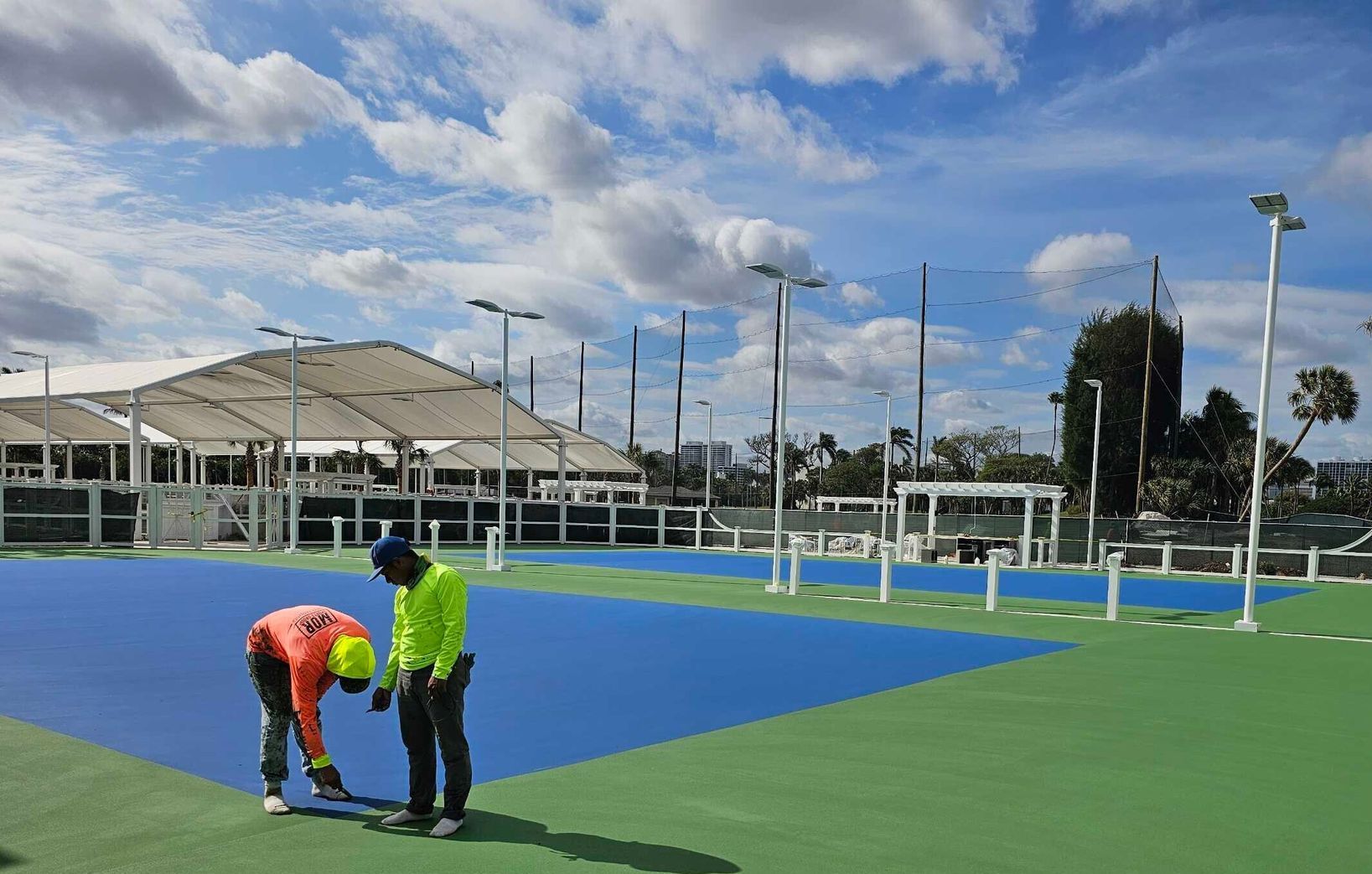
Acrylic resurfacing is one of the most popular upgrades for tennis courts today. With over 270,000 tennis courts in the United States, facilities mostly choose acrylic surfacing for its durability, consistent play, and weather resistance. These surfaces are engineered to handle UV rays, rain, and daily use, making them ideal for parks, schools, clubs, and private courts.
If you're looking for an affordable, long-lasting way to improve performance and safety, acrylic resurfacing could be the upgrade your court needs.
What Is Acrylic Resurfacing?
Acrylic resurfacing is a popular and practical solution for revitalizing worn-out tennis courts. It's not just a fresh coat of paint; it's a complete surface treatment designed to restore texture, fill in minor imperfections, and create a vibrant, high-performance playing surface. This method involves applying layers of specially formulated acrylic coatings over an existing asphalt or concrete court.
Acrylic resurfacing enhances playability, prolongs the court's life, and delivers that clean, professional look players love. It also helps in creating a more uniform bounce and reduces the wear and tear caused by consistent use and harsh weather conditions.
Top Benefits of Acrylic Tennis Court Resurfacing
Choosing acrylic resurfacing over other methods brings several distinct advantages. Whether you're managing a school facility, a private club, or a community court, these benefits make acrylic resurfacing a smart investment.
Enhanced Playing Experience and Consistent Ball Bounce
Cracks, pits, and surface inconsistencies can ruin a game. With acrylic resurfacing, players enjoy:
- A smooth, even surface
- Predictable ball bounce
- Better traction for safe movement
A consistent surface means fewer interruptions and a better game for all skill levels.
Improved Player Safety and Shock Absorption
Old or damaged courts can become dangerous. Acrylic surfaces reduce risks by minimizing tripping hazards and providing a more forgiving landing. Cushioning systems, like SportMaster's ProCushion, use multiple layers to absorb shock, helping reduce injuries, especially to the knees and ankles.
Long-Term Durability and Weather Resistance
Acrylic coatings are designed to resist UV rays, extreme heat, heavy rain, and snow. This makes them a solid choice for outdoor courts in various climates. The surface won’t fade easily, crack under pressure, or become slippery after exposure to the elements.
Low Maintenance and Cost-Effective Upkeep
Acrylic courts are relatively easy to maintain. They don’t need constant repainting or patching. Routine cleaning and occasional pressure washing can keep the surface looking fresh. When resurfacing is needed, it's far less expensive than a full court rebuild.
Customization Options for Aesthetic Appeal
With acrylic, you're not stuck with boring green and red courts. You can choose from a wide range of colors and finishes. Whether you're branding your facility, aligning with school colors, or just want something different, customization is simple and affordable.
Types of Acrylic Tennis Court Surfaces
There are a few main types of acrylic tennis court surfaces to consider. Each type is suited to different play styles, facility needs, and budget levels.
Standard Acrylic Surfaces
These are the most common and cost-effective. They provide a hard court experience with consistent speed and minimal maintenance. They’re a go-to for public parks, schools, and community facilities.
Cushioned Acrylic Surfaces
Perfect for training facilities or clubs focused on injury prevention. They add comfort with extra layers that absorb shock. The softer feel doesn't take away from ball speed or play quality but adds a layer of safety.
Colored and Custom-Tinted Surfaces
These surfaces are made to stand out. Custom-colored courts enhance visibility, match branding, and elevate the look of your facility. Color options include blues, greens, reds, and even bold designs. The vibrant hues are fade-resistant and UV stable.
Why Acrylic Resurfacer Is a Critical Step
Before the top layers go on, the court needs a strong base. That’s where the acrylic resurfacer comes in.
Filling Voids and Surface Imperfections
It fills in small holes and gaps, which are common in asphalt or concrete courts. This ensures the colored surface coat goes on smoothly and evenly. Without this layer, imperfections would still show, and wear would happen faster.
Restoring Surface Texture for Proper Coating Application
Older courts can lose their grip as the original texture wears down. Acrylic resurfacer brings back that sandpaper-like texture. This helps the top layers stick better and ensures proper thickness for long-term durability.
Extending the Life of the Court Surfacing System
By acting as a buffer and bonding layer, the resurfacer extends the lifespan of the court. It also saves money by reducing the need for frequent repairs or premature resurfacing.
Installation and Application Process
Installing an acrylic tennis court surface is a job for pros, but knowing the basics can help you make informed decisions.
- Surface Prep: Cleaning and leveling the base surface is crucial.
- Acrylic Resurfacer Application: This layer fills voids and restores texture.
- Color Coating: Usually done in two coats using a soft rubber squeegee.
- Custom Lines and Markings: Masking tape is used to create sharp, accurate lines.
- Curing Time: Let the coatings dry completely before allowing play.
Hiring professionals for acrylic resurfacing is critical to achieving a smooth, long-lasting court. Experienced contractors understand how to properly assess the existing surface, apply each layer with precision, and use the right materials for your court’s specific conditions. Mistakes in resurfacing—like uneven application, poor texture prep, or incorrect sand ratios—can lead to premature wear, poor traction, and costly repairs down the road.
Working with Experts
Mor Sports Group is a leading provider of sports construction services. Whether you're resurfacing a single tennis court or managing a multi-court facility, they offer:
- Acrylic resurfacing using certified materials
- Custom color design and branding
- Full court construction and repair
- Expert project management from start to finish
Their team brings years of experience and a commitment to quality that ensures your project is completed on time and on budget. Reach out to Mor Sports Group for a consultation and elevate your court to professional standards.
When to Resurface a Tennis Court
Knowing when to resurface your tennis court can save time and money in the long run. Look out for these signs:
- Cracks or pits on the surface
- Fading paint or lines
- Slippery areas or uneven bounce
- Water pooling after rain
Most acrylic tennis courts need resurfacing every 4 to 8 years, depending on use, location, and maintenance.
Acrylic Surfaces vs. Other Tennis Court Materials
Wondering how acrylic stacks up? Here's a quick comparison:
- Clay Courts: Require constant maintenance and daily watering. Slower ball speeds, less consistent bounce.
- Synthetic Grass: More comfortable, but tends to wear unevenly and has inconsistent ball behavior.
- Acrylic Courts: Provide consistent bounce, are low maintenance, and perform well in most climates.
Boosting Property Value with Acrylic Resurfacing
A fresh, vibrant court is more than just a play space. It's an asset. For clubs, schools, and homeowners:
- A well-kept court attracts more players and guests
- Enhances the overall appeal of the property
- Shows commitment to quality and care
Whether you're hosting tournaments or creating a great spot for family recreation, acrylic resurfacing is a noticeable upgrade.
Conclusion
Acrylic resurfacing delivers on performance, safety, aesthetics, and value. It’s the ideal solution for tennis courts that need a facelift without the high cost of total replacement. With the right installer and materials, your court can be ready for years of smooth, consistent, and safe play.
For more detailed guidance, be sure to explore maintenance manuals and certified product options from consult experts like Mor Sports Group for tailored solutions.
